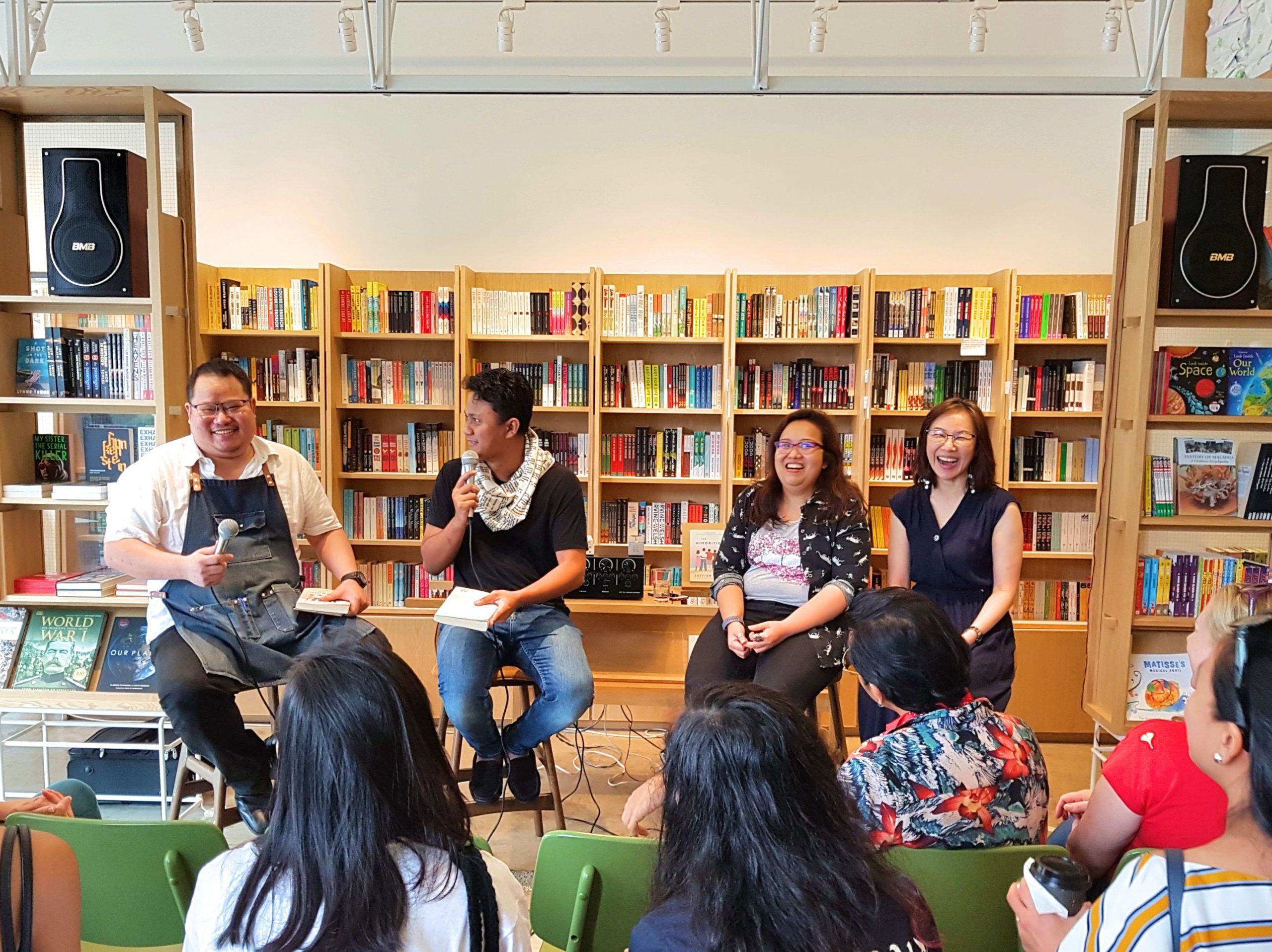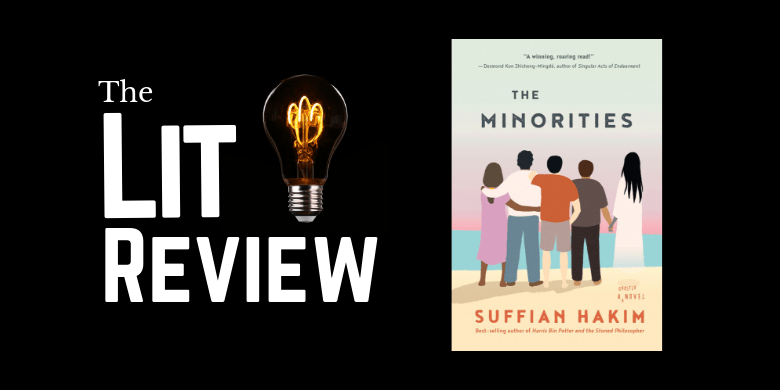
Suffian Hakim’s The Minorities is a fantastical supernatural tale of four very unlikely housemates embarking on a journey to help a lonely Pontianak return home to Melaka. It is a wacky, witty, cheeky and laugh-out-loud funny parody, but it is also layered and emotionally rich.

Together with the lovely ladies from Two Book Nerds Talking podcast, Diana Yeong and Honey Ahmad, we had the pleasure of hosting Suffian for a meet-and-greet at Lit Books on July 27. The full podcast will be aired soon, but here are some gems from the delightful hour-long conversation with Suffian.
On the protagonist opening up his house to immigrants of suspicious origins:
For me it was the idea of kindness derived from depression [the protagonist was mourning the death of his father]. If you want to pull yourself out of depression, you do that through kindness, through opening yourself up to other people.
On marring very real father-son issues on the one hand with an epic demon army battle on the other in one book:
As a person I believe you cannot experience the world just one way. When I was writing the book it was always clear in my mind that this person’s life, what the narrator and his friends are going through [with the Pontianak], is as important and as real to them as their own personal emotional journeys. You can’t exclude one from the other. We go through our lives — we get into relationships, we break up — but in the meantime, a war is going on in Iraq and all that. But we’re also having our own personal emotional journeys and I wanted to make sure that both arcs play out to their logical conclusions.
On the use of food puns as titles of chapters:
The idea with the chapter titles like ‘Diet Coke and Mentos’, ‘Chinese Century Egg’, ‘Gula Melaka Dreamsicle’, ‘The Long Arm of the Coleslaw’ was that I wanted to parody the fact that when most people consider a minority group by ethnicity, the only way they seem to connect or contextualise that group is through food, but not so much the rich history or heritage they might have. It was to bring to light the fact that a minority group is more than their food.
On an almond that recurs throughout the story and its significance:
The almond that keeps popping up in the book, it’s a cheap thrill for me as an author (laughs). In Arab Muslim cultures, when a boy comes of age it’s tradition for his dad to give him a bag of almonds as a gift. The almond in the story represents the narrator’s issues with his dad, the baggage that he keeps because of his strained relationship with his dad. What he does with the almond in the end signifies the fact that he’s finally letting go of his issues with his dad.

The Minorities is available at Lit Books for RM69.90.

